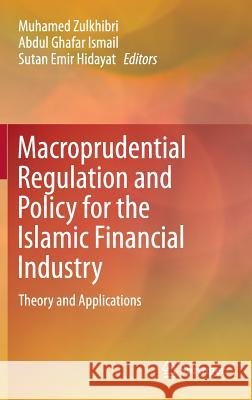Macroprudential Regulation and Policy for the Islamic Financial Industry: Theory and Applications » książka
Macroprudential Regulation and Policy for the Islamic Financial Industry: Theory and Applications
ISBN-13: 9783319304434 / Angielski / Twarda / 2016 / 272 str.
This volume aims to discuss the current research, theory, methodology and applications of macropreudential regulation and policy for the Islamic financial industry. Published in cooperation with the Islamic Research and Training Institute (IRTI), this book features contributions from a workshop presented in collaboration with the University College of Bahrain (UCB) in Manama, Bahrain, aimed to bring together experts in Islamic banking and regulation and financial economics. This resulting book sheds light on how macroprudential policy may be implemented in the Islamic financial system, and indicates current challenges and their effects on economic growth, financial stability and monetary regulation. Macroprudential policy is increasingly seen as a way of dealing with the different dimensions of systemic risk. But many central banks, bank supervisors and regulators have limited experience with macroprudential tools, particularly in the Islamic financial industry. Given the complementarities between monetary policy and financial stability, it appears that central banks would always play an important role in macroprudential policy. But how should macroprudential policy best interact with monetary policy? It is becoming more pressing for the central banks to conduct monetary policy in which its conventional banking system operates side by side with Islamic banking system. This question has received increasing attention in the research literature but there is much we still need to learn. This is why new insights from research on macroprudential policy - which has gained important impetus in recent years - are so valuable. Featuring contributions on topics such as macroprudential regulation, policy, tools and instruments; governance, systematic risk, monetary policy, and bank leverage, the editors provide a collection of comprehensive research covering the most important issues on macroprudential policy and regulation for the Islamic financial industry. This volume is expected to be a significant contribution to the literature in the field of Islamic finance and evaluation of public policies to promote the development for Islamic financial industry. It is also served as a key text for students, academics, researchers, policy-makers in the field of Islamic finance.











